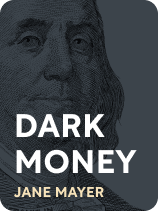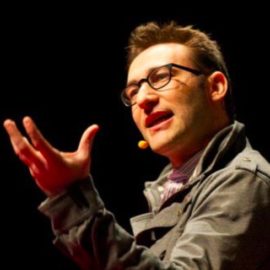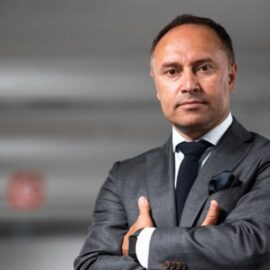

This article is an excerpt from the Shortform book guide to "Dark Money" by Jane Mayer. Shortform has the world's best summaries and analyses of books you should be reading.
Like this article? Sign up for a free trial here.
How have the Koch brothers influenced American politics? What policies and candidates have they supported, and why?
In Dark Money, award-winning journalist Jane Mayer argues that the wealthy elite in America has used their fortunes to propagate far-right ideology in American politics between the 1970s and 2016. She discusses conservative business tycoons Charles and David Koch in particular.
Continue reading for an overview of Dark Money by Jane Mayer.
Overview of Dark Money by Jane Mayer
According to Dark Money by Jane Mayer, the Koch brothers created a massive political network that effectively shifted American politics from center-left to the right and infused the culture and government with the previously fringe beliefs of libertarianism and free market capitalism. They did this, Mayer says, under the guise of philanthropy.
Mayer has won several awards for her work for The New Yorker, including the John Chancellor Award and the Toner Prize for Excellence in Political Reporting. She is the author of The Dark Side, which also won multiple awards including the J. Anthony Lukas Book Prize and the Ridenhour Prize.
We’ll explore how, according to Mayer, Charles and David Koch developed their ideas about free market capitalism, how they and their donors used their vast wealth to transform these ideas from a fringe to a mainstream movement, and how they used that movement to wield disproportionate influence over American politics to protect and grow their wealth.
The Koch Brothers: Inheriting Free Market Beliefs
According to Mayer, the Koch brothers’ political beliefs were influenced heavily by those of their father, Fred Koch (1900-1967). Fred was a businessman who distrusted the government and was strongly in favor of free markets. Later, explains Mayer, Fred became one of the first members of the John Birch Society, a group that promoted conspiracy theories that Communists were trying to overthrow America.
According to Mayer, Fred Koch set up a charitable lead trust so he could avoid inheritance taxes when passing on his fortune to his sons. This way, they could avoid taxes and control what was done with the money they donated while also appearing to the public as generous philanthropists.
Building a Movement
According to Mayer, Charles took an interest in spreading his beliefs to others. In the 1960s he became involved with funding and running a school called the Freedom School, which later expanded into Rampart College. (Shortform note: Now, Charles Koch is continuing to fund “freedom schools” at institutions like Arizona State University and the University of Arizona. The curricula at these freedom schools are also based on libertarian thought.)
Charles and David began passionately championing libertarianism, which, at the time, was a fringe belief, explains Mayer. In 1976 Charles funded the Center for Libertarian Studies in New York City, where a conference was held that featured several high-profile libertarian figures.
They recommended inventing fake grassroots movements, courting media figures to create a positive public image, and targeting America’s youth. They further advised funding private institutions at highly respected universities so donors could control things like staffing decisions and curricula. This conference began the creation of a vast donor network of America’s wealthy elite dedicated to the proliferation of libertarian beliefs.
Funneling Dark Money: Partisanship in Think Tanks
From the beginning, explains Mayer, the wealthy had to circumvent campaign finance laws and regulations on lobbying groups in order to keep their political spending secret and to continue to enjoy the tax-exempt status of their foundations. Money spent in this way is known as dark money.
However, in the 1970s, conservatives began redefining what partisanship looked like by portraying well-known nonpartisan news outlets like The New York Times as distinctly liberal and claiming they were just providing a counterpoint to those ideas. This not only made conservative think tanks appear less biased, explains Mayer, but it pushed these previously independent news sources further right as these groups scrambled to add conservatives to their ranks to appear less biased.
This shift of the entire political climate to the right made the ideas of free-market capitalism and libertarianism more mainstream. The wealthy also began funding biased and even fraudulent academic and scientific research through think tanks.
Catalysts: The Factors Leading to the Kochs’ Political Involvement
Prior to 1970, explains Mayer, the Kochs had been focused more on spreading free market ideas to the public and in academia. However, clashes with the government and the legal system led them to seek ways to use their power to directly influence the political sphere.
One of the biggest motivating factors for the Kochs and many others in their donor network was the new environmental and labor regulations.
According to Mayer, corporations were disturbed by these groups’ actions and their potential harm to industrial profits. Some corporations—including Koch Industries—found themselves facing legal issues as a result of their practices. During these cases, the Kochs established what appeared to be a pattern of spying on and intimidating their legal opponents.
Over the years, there were numerous other lawsuits filed against Koch Industries over their handling of toxic chemicals, their maintenance of underground pipelines, and their theft of oil from tribal land owned by Native Americans, among other things. Several individuals involved in these cases found themselves being spied on.
These suits were heavily damaging to Koch Industries’ public image, but Charles Koch didn’t feel the company needed to change its practices—rather, he felt that the problem was the legal system itself, and these suits prompted him to strive to create a purely free market economy without any of the regulations that were causing his company’s problems.
Taking Over American Politics: Richard Fink’s Plan
While the Kochs felt motivated to enter politics, they struggled to gain traction. In 1980, David Koch ran for vice president on the libertarian ticket. It called for the abolition of essentially every government service except the enforcement of property laws. The campaign failed, receiving just 1% of the vote.
Taking a lesson from this, Mayer explains that the Kochs decided to keep their political influence at the funding level instead of running for office themselves. They began devoting their fortune to front groups that presented the government as the enemy of the people and believed that the purpose of the nation should be to enable private citizens to accrue immense wealth.
(Shortform note: In recent years, Charles Koch has expressed some regret over his heavily partisan participation in the political sphere. He’s begun trying to reach across the aisle in order to bridge the ideological divide in America he feels he helped create. However, the vast majority of his political spending continues to go to Republican candidates.)
To this end, Charles Koch hired Richard Fink as his political advisor. According to Mayer, Fink laid out a specific plan consisting of three phases for taking over American politics. These three steps were 1) invest in conservative intellectuals who could produce the ideas for the movement, 2) invest in think tanks to market these ideas as policies, and 3) create groups that supposedly represented the will of the people to pressure politicians to adopt the policies.
Phase 1: Produce Conservative Ideas
To carry out phase 1, explains Mayer, the Kochs sought to establish a beachhead, or a program at a prestigious university that they could fill with conservative-minded faculty and then grow into much larger programs. They established the Institute for Humane Studies at George Mason University and provided funding to other think tanks like the Cato Institute and the Heritage Foundation to create the intellectuals who would produce ideas for the libertarian movement.
Phase 2: Market Conservative Policies
For phase 2, the Kochs established the Mercatus Center, also at George Mason University, which critics described as nothing more than a lobbying group. Conservative faculty members wrote drafts of bills for issues like supply-side tax cuts that were then passed on to legislators to introduce into Congress. According to Mayer, such programs led these previously far-right ideas to be taken seriously in politics and to begin affecting legislation, just as Fink had planned.
Phase 3: Apply Popular Pressure to Influence Politicians
Finally, for phase 3, Charles Koch established the nonprofit educational group Citizens for a Sound Economy, which would act as a sales force to build public support for their libertarian ideology. Over the next few decades, the Kochs repeated this pattern at hundreds of other universities and think tanks.
Electoral Politics: Funding Candidates and Campaigns
Though they’d previously been opposed to the Republican Party because it was too moderate, explains Mayer, the Kochs began donating heavily to Republican politicians in the 1980s and 1990s. They also funded vicious attack ads against Democrats in the 1996 election.
According to Mayer, to conceal the money’s origin, they funneled their money through the tax-exempt nonprofit group, the Economic Education Trust, which then poured the money into a shell corporation called Triad Management Services that made the ads. It’s suspected that the ads affected the outcomes of four races which helped Republicans retain control of the House of Representatives.
(Shortform note: The Kochs’ funding of attack ads may have had a greater effect than comparable funding from the Republican party. Research suggests that attack ads funded by independent sources—like the Economic Education Trust—are more effective than attack ads funded by candidates against their opponents. Ads funded by candidates often receive backlash that independent groups are not subject to, and this may incentivize those independent groups to make more controversial, and potentially less truthful, ads.)
Over the next two decades, the Kochs continued to flood money into conservative politicians’ campaigns, think tanks, and public interest groups in order to promote free market economics. The exact amount of dark money they spent is unknown, and the flexibility of laws exempting charities from taxes enabled them to have an immense monetary impact on electoral politics.
(Shortform note: Americans may be becoming increasingly opposed to the role of dark money in elections. A 2019 study showed widespread support for requiring political groups to disclose their donors, with less than 25% saying they shouldn’t have to disclose the source of their funding. Additionally, a 2018 study indicated that most Americans favor putting limits on campaign spending because without them, the wealthy have a disproportionate influence on politics.)
The Election of Barack Obama and the Tea Party Movement
In 2008, Barack Obama’s platform promised to reduce income inequality by making the wealthy pay their fair share. The Kochs and other elites were highly disturbed by this and were determined to undermine his presidency.
(Shortform note: The Kochs maintained a rocky relationship with President Obama throughout his presidency. However, they have occasionally aligned on other issues, such as criminal justice reform.)
Immediately after Obama’s inauguration, the Kochs’ nonprofit advocacy group Americans for Prosperity began attacking his platform, organizing rallies and other events decrying public spending to undercut his proposed stimulus bill. According to Mayer, this unrest combined with the ideological movement fueled by the Kochs led to the creation of the Tea Party movement. The movement was partly a response to Obama’s proposal in 2009 to help bail out homeowners facing foreclosure during the economic crisis.
This sentiment—that poverty is a personal failing, that people shouldn’t be expected to help other people who are struggling, and that personal opportunity is more important than others’ welfare—defined much of the Tea Party platform, according to Mayer. The movement was painted as a widespread grassroots movement. But, in reality, it was engineered by outside money.
Some officials in Congress formed a strategy of obstructionism designed to prevent any part of Obama’s platform from being enacted. Moderates saw that, if they didn’t shift to the right, they would be ousted in primary races and replaced with extreme candidates funded by outside money.
Redistributing Power in the States: Citizens United and REDMAP
Having heavily impaired Obama’s power by undermining the bipartisan support he was expecting, the Kochs next went after power at the state level, explains Mayer. In 2010, the Supreme Court’s ruling in the Citizens United case enabled just a handful of extremely wealthy people to implement their personal agendas in the political sphere.
Simultaneously, in 2011, many states were redrawing their districts as they did once a decade. A political tactician named Ed Gillespie created a plan to redraw districts to disproportionately benefit Republicans, a plan they called REDMAP.
In 2012, with the REDMAP plan and the spending power granted by Citizens United, Republicans successfully turned the swing state of North Carolina red, allowing Republicans to maintain their majority in the House of Representatives. A lawsuit filed by progressives against the new district maps was killed by the state’s majority-Republican supreme court. The pattern was repeated across the nation, giving Republicans control over both the legislatures and governorships in over 20 states and turning other previously swing states like Michigan and Ohio red.
(Shortform note: In 2017, the Supreme Court ruled that the gerrymandering of two districts in North Carolina was unconstitutional and was designed to limit the power of Black voters in the state.)
Obama’s 2012 Reelection and Its Aftermath: Retooling the Conservative Approach
By 2012, the Kochs had undermined Obama’s administration and created a cultural push in the Republican party toward far-right ideology. Republicans had done well in the states, but Mitt Romney had proven to be too weak a candidate to beat President Obama despite the $2.5 billion spent against him.
Based on research from their think tanks, they realized that much of the issue was that people viewed the Republican party as lacking in empathy for the poor and for average citizens. The Kochs began funding a campaign to change Republicans’ public image to make them seem like they were working to protect American citizens and not just their own wealth.
Mayer writes that the Kochs made a show of public donations to groups like the United Negro College Fund, and they continued to target academia through the hundreds of programs they were funding at universities across the country. They also began targeting high school students.
(Shortform note: In a 2016 article in The New Yorker, Mayer discusses the success of the Kochs’ rebranding. In 2018, Charles Koch announced to his network that they would begin publicizing their contributions to universities, and some Democrats have noted that their rebranding has been at least somewhat successful in that it placed them behind Donald Trump as the main enemy of the left.)
Additionally, says Mayer, the Kochs decided to retool the Republican party, blaming its infrastructure for their 2012 loss. Now, even Republicans who had been touting these free market ideals found their positions jeopardized by wealthy donors threatening to fund and replace them with more extreme candidates.
The Kochs’ efforts proved fruitful in the 2014 election when the Republicans managed to win both houses of Congress. It was the largest amount of outside money ever spent on a midterm election. Republicans shifted further right or were replaced with officials further to the right. The Kochs had effectively achieved their decades-long goal of making libertarianism mainstream and controlling the government in a way no private citizens ever had before.
(Shortform note: In response to the attacks on his agenda, President Obama began to embrace his executive power.)
The 2016 Surprise: The Election of Donald Trump
In 2016, the Kochs weren’t backing any presidential candidate but were focusing on maintaining their hold on both houses of Congress and further cementing their hold on governments at the state and local levels, which they accomplished. Leading up to the election, the Kochs seemed to oppose him. But, after his victory, Trump put together a transition team full of corporate lobbyists, many of whom had ties to the Kochs.
As a whole, Mayer explains, the Trump administration began implementing policies that aligned closely with the Kochs’ ideals, promoting fossil fuels, decreasing government regulations, and promising to dismantle the EPA, among other things. Though it remained unclear how much direct influence the Kochs would be able to wield over Trump, what was clear was that their wealth would continue to have a heavy influence on the nation’s politics for the foreseeable future—even after the Kochs’ deaths, as directed in their wills.
(Shortform note: David passed away in 2019, and Charles is 87. Charles’s son Chase has taken over David’s role in the company and made plans to move away from the political sphere in favor of advancing libertarian principles and issues of social justice, suggesting the Kochs’ fortune in the near future might no longer go to supporting political candidates or policies. Charles has said he doesn’t know who his successor will be but that they will be selected by the board after his death.)

———End of Preview———
Like what you just read? Read the rest of the world's best book summary and analysis of Jane Mayer's "Dark Money" at Shortform.
Here's what you'll find in our full Dark Money summary:
- How a group of wealthy individuals has legitimized far-right beliefs in America
- A look at Charles and David Koch's views and tactics
- The influence dark money has had on American politics and society






